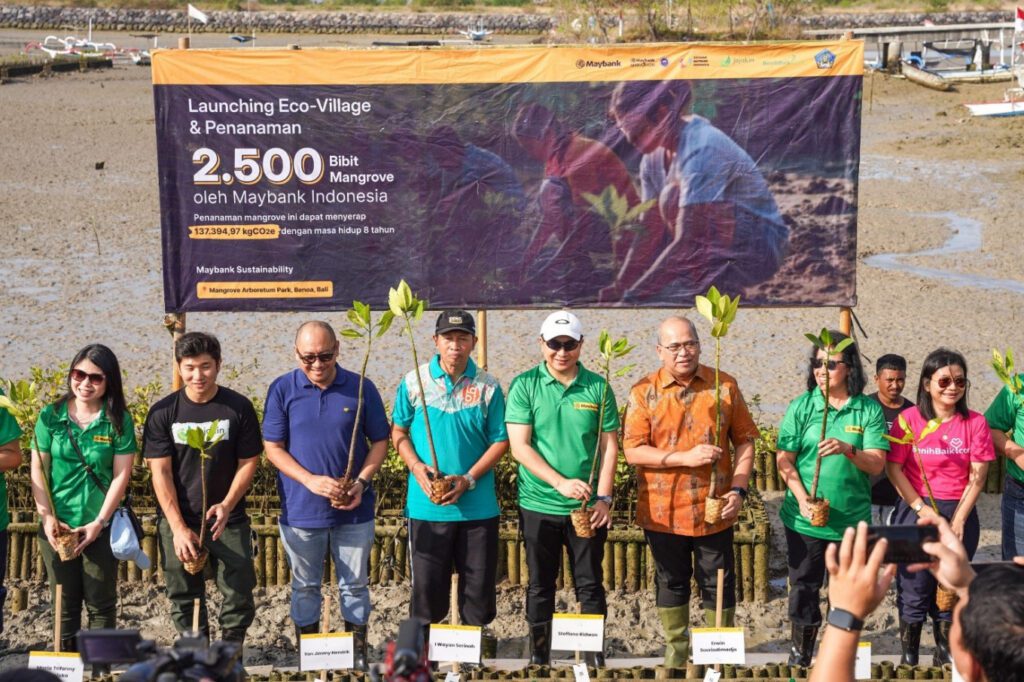Maybank Indonesia’s Commitment to Environmental Sustainability: A Deep Dive into the Maybank Marathon 2024
Focused Keyword: Environmental Sustainability Initiatives
Maybank Indonesia has taken significant strides in enhancing its commitment to environmental sustainability initiatives by introducing two major programs in conjunction with the upcoming Maybank Marathon 2024. Scheduled for August 25, this year’s marathon will commence at the Bali United Training Center in Gianyar, Bali. As part of its ongoing efforts, Maybank is integrating sustainable practices into this event, furthering its mission of promoting environmental stewardship.
Among the standout initiatives is a mangrove planting activity, which aims to bolster coastal ecosystems in Bali. By specifically engaging participants of the marathon in planting 2,500 mangroves at the Mangrove Arboretum Park in Tanjung Benoa, the bank reinforces its commitment to achieving carbon neutrality by 2023. Last year, Maybank successfully planted 2,000 mangroves, demonstrating a commitment to monitoring their growth and health. The total expected contribution from this initiative is substantial; it is estimated that the planted mangroves will absorb approximately 247,310.95 kgCO2e over eight years, equating to the energy savings of 277,566 kWh or the reduction of car travel by 3.8 million kilometers.
In addition to mangrove planting, Maybank Indonesia is also inaugurating an organic waste management facility in Sanding village, Gianyar. This facility aims to process up to 500 kg of organic waste daily, transforming it into natural fertilizers for local agricultural use. This initiative seeks to combat the waste disposal challenges in Bali, which have significant implications on environmental health and tourism. By providing a structured waste management solution, the bank hopes to engage local communities in awareness campaigns regarding waste sorting and management.
Employing cutting-edge black soldier fly (BSF) technology, the organic waste management facility will not only aid in effective waste disposal but also create economic opportunities for the local population. Community members will receive training on waste management processes and can benefit from schemes like waste banks, thus promoting a culture of sustainability. According to Steffano Ridwan, president director of Maybank Indonesia, these initiatives are integral to the bank’s broader objective of enhancing environmental and social governance (ESG) practices.
Collaboration is a key element of these sustainability initiatives. Partnering with organizations like Jejakin and BenihBaik.com, Maybank Indonesia aims for a lasting positive impact on the environment and communities in Bali. Jejakin’s COO, Andreas Djingga, expressed optimism about ongoing partnerships for mangrove conservation, emphasizing the importance of technology in monitoring growth outcomes, while BenihBaik.com’s chief of partnership, Greeny Dewayanti, underscored the importance of transforming corporate social responsibility into sustainable practices.
The Bali administration has noted the importance of these sustainability efforts as well. Dr. I Wayan Serinah, the assistant for economic and development affairs, highlighted how Maybank Indonesia’s involvement has led to remarkable ecological achievements. The forest cover in Bali has reportedly increased from 23 percent to 28 percent, while mangrove coverage has risen significantly. Local officials are hopeful that these collaborative efforts will continue to contribute positively to the environmental landscape of Bali and Indonesia.
Through initiatives like the Maybank Marathon 2024, Maybank Indonesia demonstrates its commitment to enhancing environmental sustainability and making a meaningful impact. As participants and local residents engage in these activities, the bank hopes to foster a greater understanding of environmental issues and solutions, reinforcing its dedication to not only financial services but also social responsibilities. The bank’s approach emphasizes the importance of engaging communities to create cohesive partnerships focused on building a sustainable future.
This article is in partnership with Maybank.
